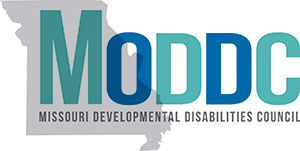Missouri Disaster Preparedness Month
National Preparedness Month is an observance each September to raise awareness about the importance of preparing for disasters and emergencies that could happen at any time.
Each year in September, the Missouri Developmental Disabilities Council conducts a statewide survey to determine how prepared people with disabilities and others are for a disaster. The 2021 and 2022 Missouri Disaster Preparedness Surveys were conducted in conjunction with National Preparedness Month and the survey asked about peoples' experiences, how prepared they were at the time, and what could help them be more prepared for disasters in the future.
In 2022, 163 people completed the survey and 51 counties in Missouri were represented.
The top three disasters respondents said they experienced were strong storms, ice storms, and extreme heat. 9% of respondents indicated that they were not at all prepared for the disasters they had experienced and 68% said they were somewhat prepared. The top three disasters respondents said they were concerned about were tornadoes, ice storms, and strong storms. When asked how prepared they were now, 8% said they were not at all prepared and 70% said they were somewhat prepared. If disaster does strike, 35% of respondents indicated that they do not have a plan in place. Regarding what respondents have on hand, 75% said they do not have alternate power and 61% said they do not have a 'go bag.' 80% of respondents said they had food and water on hand and 74% said they had medications.
2023 Theme: Take Control in 1, 2, 3
The Ready Campaign’s 2023 National Preparedness Month theme is “Take Control in 1, 2, 3”. The campaign will focus on preparing older adults for disasters, specifically older adults from communities that are disproportionally impacted by the all-hazard events, which continue to threaten the nation.
We know older adults can face greater risks when it comes to the multitude of extreme weather events and emergencies we now face, especially if they are living alone, are low-income, have a disability, or live in rural areas.
Emergency managers and all those who work with and support older adult communities to access the new webpage available in English and Spanish languages at Ready.gov/older-adults and Ready.gov/es/adultos-mayores. For more information on preparing with disabilities visit Ready.gov/disability or Ready.gov/es/discapacidad in Spanish.
Upcoming Trainings
- October 16-17, 2023: Emergency Management Disability Awareness Training for Region B in Adair County
- October 18-19, 2023 Emergency Management Disability Awareness Training for Region C in Warren County
- First Responder Disability Awareness Training available online free of cost for Missouri Emergency Medical Services

